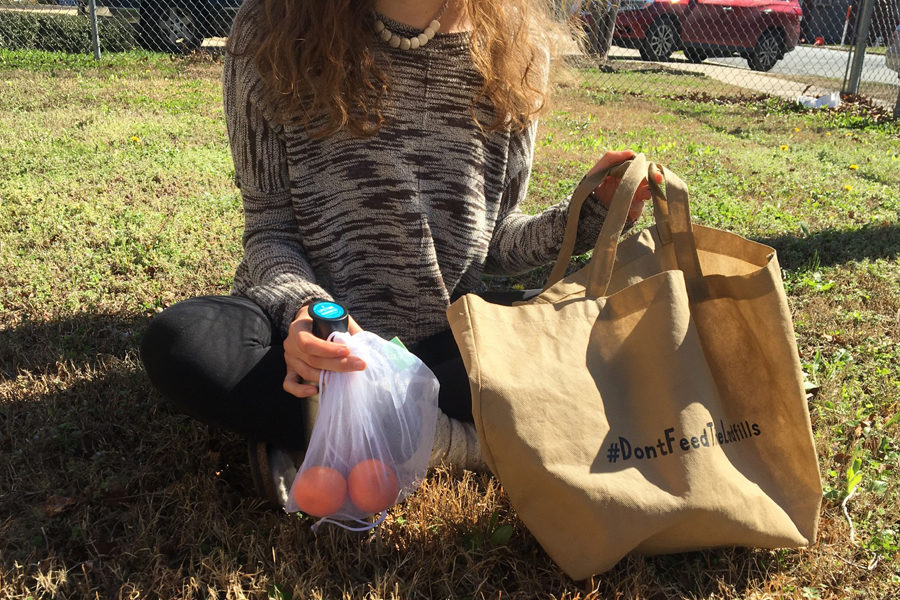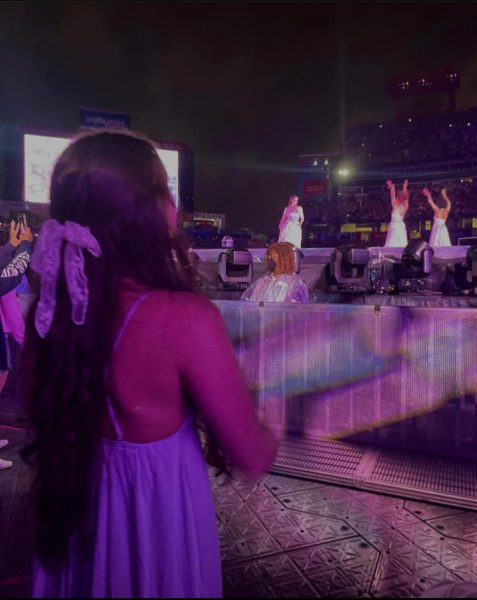Show Earth Some Love By Refusing Waste, Living Minimally
Take a look in any trash can. It likely contains items like a plastic fork, a banana peel, and a styrofoam cup. When these items are thrown in the trash, they don’t simply disappear; they end up in a landfill for generations to come, rotting away and polluting our precious air, oceans, and drinking water.
Americans generate more waste than any other country. Our convenience-based lifestyle consisting of single-use items and excessive packaging (mostly made of plastic) is causing overflowed landfills and a toxic environment. At this point, simply recycling paper and plastics isn’t enough–it’s time to really think about where waste comes from, where it is going, and how to make the most sustainable choices.
The simplest way to reduce environmental impact is by reducing waste and living minimally. Most people start with recycling to reduce their waste, but in fact, recycling is a form of waste as well. Recycling is not as efficient as most people think it is; it takes a lot of energy, and many materials don’t actually get recycled because of various problems, including improper disposal, difficulty melting materials down, and a lack of companies wanting to buy recycled materials. In addition, recycling doesn’t solve the problem of waste, it simply diverts it; natural resources are still being exploited and mixed with toxic chemicals to create new products, so it’s important to completely stop buying items that will inevitably create waste, despite whether they can be recycled.
“I try to be really conscious of things I’m consuming and whether I need it or just want it. I’m very picky on spending money on stuff that won’t really change anything for me,” senior Serena Hanson said.
Minimalism is all about holding on to items that serve multiple purposes, are long-lasting, and bring meaning. It’s about taking care of and cherishing the things you own rather than buying inexpensive junk that will ultimately end up in the landfill. Once you begin really thinking through each of your purchases, you will naturally reduce how much waste you contribute. You may cut down on styrofoam Sonic drinks that take 500 years to decompose and rethink buying that cheap Forever 21 tank top that will wear out after a year, but you’ll save money for things that truly bring value, like a quality set of speakers or a durable raincoat that will last forever.
In conjunction with living minimally, it’s beneficial to abstain from using everyday items that create waste, such as plastic straws, grocery bags, paper cups, and much more.
“I try not to use plastic water bottles. I bring a reusable water bottle everyday. My lunch box is reusable instead of those brown paper bags,” sophomore Lily Ryall said. “I like buying in bulk and using reusable packaging instead of individual packaging, too.”
Refusing to buy plastic water bottles alone would reduce so much environmental harm, and it’s incredibly easy. Only one in five plastic bottles are recycled, and they can take between 400 and 1,000 years to decompose. With clean, tasty, fresh Little Rock water so readily available, why not spend $10 once on a reusable water bottle rather than spending $5 every month on something that is so horrible for the earth.
It’s impossible to include all of the disturbing facts about the environmental consequences of products most people living in developed countries use, but all it takes is a little extra thought to make more sustainable choices. Next time you throw something away, think about where it is going. Picture your waste rotting in a landfill, leaching toxic chemicals into the groundwater and emitting methane into the air. What you throw away is not going to decompose any time soon; it’s likely to rot in landfills, increasing the amount of uninhabitable land on this precious planet earth.
Water bottle facts: https://www.banthebottle.net/articles/10-startling-facts-about-bottled-water/













